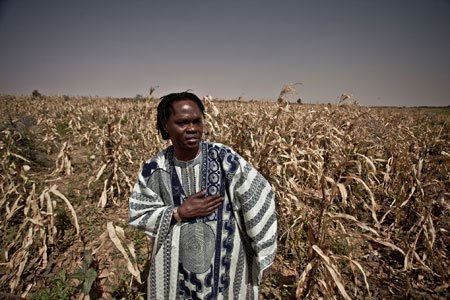
UN deputy humanitarian chief Catherine Bragg wrapped up her five-day visit to southern Africa last week with a call for regional Governments and humanitarian organisations to work together to break the cycle of food shortages and poverty in the region.
Report By AMH Online
Food insecurity continues to be a chronic problem in southern Africa, particularly in Lesotho, Malawi, Swaziland and Zimbabwe. Across the region, more than 5,5 million people in eight countries face food shortages — a 40% increase in the past year — due to rising food prices and recurrent natural disasters such as droughts and floods.
“Southern Africa is facing a silent food-insecurity emergency,” said Bragg, who visited Botswana, South Africa and Zimbabwe.
“In Lesotho, about a third of the population does not have enough food to eat or sell. In Zimbabwe, 1,6 million people are expected to be food insecure, and many families are selling their own livestock to cope with this dire situation.”
UN agencies, such as the World Food Programme (WFP) and the Food and Agriculture Organization (FAO), are responding to the immediate needs and helping people find ways to cope with the crisis through improved agricultural and livestock production.
In Lesotho and Malawi, WFP is reaching hundreds of thousands of children with nutrition and school-feeding programmes. In Zimbabwe, WFP has scaled up its food distribution, and FAO is promoting sustainable farming practices such as soil conservation and livestock-vaccination campaigns.
Since 2011, several UN agencies have received allocations from the UN Central Emergency Response Fund (CERF) to address crises in the region, from natural disasters and food insecurity, to emergency health care including cholera prevention and treatment.
- Chamisa under fire over US$120K donation
- Mavhunga puts DeMbare into Chibuku quarterfinals
- Pension funds bet on Cabora Bassa oilfields
- Councils defy govt fire tender directive
Keep Reading
During her trip, Bragg met representatives from the Southern African Development Community (Sadc) to discuss how to tackle food insecurity and promote disaster preparedness. Sadc, made up of 15 countries, has taken the lead in putting in place contingency and preparedness measures to respond to emergencies. More than half a million people were affected earlier this year when floods destroyed tens of thousands of homes and acres of farmland across southern Africa.







